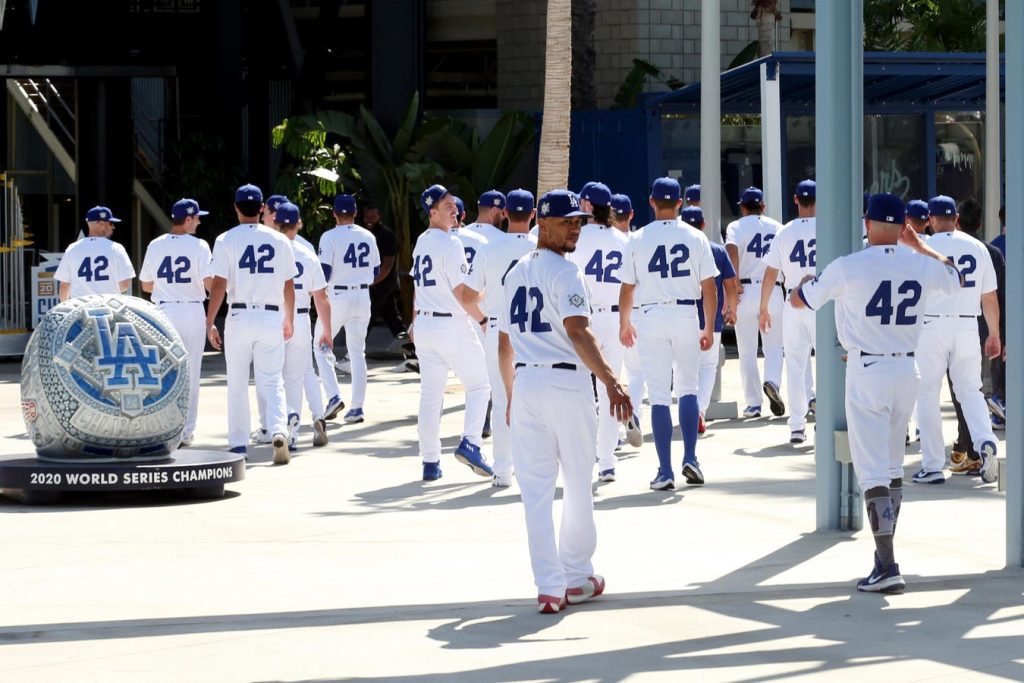Reflections on Jackie Robinson Day
Jackie Robinson Day appears to be fading away.
Major League Baseball (MLB) executives seem to be moving away from honoring this day, which has been recognized for 28 years. In an effort to avoid government scrutiny, they might even consider bringing back Robinson’s No. 42 across the league, despite the allure of a record-breaking revenue of $12.1 billion last season, up from the previous year’s $11.6 billion.
Politics and Diversity Challenges
The current political climate under the Trump administration has shown a lack of commitment to diversity initiatives. Recently, the Department of Defense even removed a page detailing Robinson’s service history from their website, only for it to be reinstated later that same day. Jackie Robinson’s defiance during his military service, mirrored in the civil rights struggle, is a reminder of his overdue significance.
Robinson, who broke the color barrier in baseball on April 15, 1947, had already endured discrimination prior to this achievement. His court-martial at Fort Hood, Texas, for refusing to give up his seat on an Army bus in 1944 serves as an important historical parallel to Rosa Parks’ actions in Montgomery, Alabama.
Military and Corporate Dynamics
Amid discussions of diversity and compliance with federal laws, MLB officials have taken measures to avoid controversy by removing references to diversity from their website. This move was supposedly in alignment with Trump’s executive orders, which threatened organizations with federal action over their diversity, equity, and inclusion (DEI) initiatives.
Jackie Robinson Day Under Threat
There are indications that Jackie Robinson Day may no longer be celebrated if MLB fails to adhere to these new guidelines. This potential cancellation could be the MLB’s way of acknowledging its long-standing issues with representation, as the number of African American players in the league has consistently dwindled from nearly 27% in the mid-1970s to just 6% as of 2024.
A Fractured Legacy
The representation of African Americans in managerial and executive roles within Major League Baseball remains alarmingly low, with only a small number currently holding these positions. Despite ongoing claims by MLB officials of efforts to diversify the game, there appears to be a significant disparity between those claims and the actual representation on the field and in management.
Looking Ahead
As MLB takes steps to align its policies with new federal guidelines, many are left questioning the future of Jackie Robinson’s legacy. What once was a proud celebration of diversity may soon be overshadowed by compliance measures, calling into question the deeper values of inclusion and representation that Robinson fought for.



